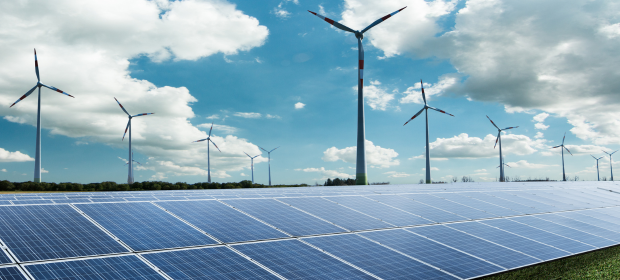Prime Minister Rishi Sunak recently announced that he’s delaying some of the UK’s net zero policies, yet is assuring people that he remains committed to reaching the overall 2050 net zero target. The PM says that the relaxation of some policies will help families save money amid the cost-of-living crisis, but experts warn that these changes could actually do more harm than good.

So which rules have been relaxed? And what will this mean for the average family, for small businesses and for landlords? Let’s take a look:
Key changes to net zero policies
The PM has made some amendments to a couple of net zero policies, which the government has said will “ease the burden on working people”. He’s also quashed proposals on ideas such as additional recycling bins and taxes on meat and flying. We’ve outlined these key changes below.
Petrol and diesel car ban will move to 2035
The sale of new petrol and diesel cars was set to be banned by 2030, but the PM has announced that this will be pushed back to 2035 in the hope that this will allow people extra time to take advantage of falling prices.
Several boiler regulations will be relaxed
Possibly one of the biggest delays is on the ban on installing off-grid oil and LPG boilers and new coal heating. Originally set to be phased out from 2026, the ban has now been pushed back until 2035. The government has justified this decision by saying that heat pumps aren’t suitable for many off-grid homes and so this delay means families won’t have to fork out up to £15,000 to upgrade their homes in such a short space of time.
The target of phasing out fossil fuel boilers by 2035 has also been relaxed. The government has now said that it’s aiming to phase out these types of boilers by 80%, helping households that would really struggle to afford to switch to cleaner alternatives.
In addition, the PM has made the decision to increase the Boiler Upgrade Grant to £7,500 to support families further.
Energy efficiency policy will be scrapped
We’ve talked a lot about the latest EPC requirements that would force many landlords to make costly energy-efficient upgrades over the next few years. However, the PM has now done a complete 180; scrapping this upcoming policy and instead encouraging households to consider making these upgrades if and when they can.
Proposals for ideas such as meat and flying taxes are quashed
Ideas about bringing in proposals to reduce meat and dairy consumption, discourage flying or require households to have up to seven bins are often batted around. But the government has ruled out any chance of these proposals going ahead in order to prevent too much interference in people’s lives.
If you’d like to learn more about the PM’s decision to relax some of the net zero policies, please visit the government’s press release.
The consequences
So what do these changes mean for families, landlords and small businesses? Whilst the government has said that these changes will “ease the financial burden” during the cost-of-living crisis, some experts have raised concerns that these changes may actually make people worse off.
Experts warn that the UK is over-reliant on fossil fuels and relaxing these rules will only mean that households and businesses continue to be exposed to volatile and expensive oil and gas prices. This sparks a key debate: would we be better off if we embraced cleaner energy rather than delaying it? Other concerns are that these changes will push prices up further, undermine investment opportunities and have a long-term effect on our economy.
And whilst the scrapping of the EPC policy may be welcomed by landlords, there are fears that this will simply push costs onto tenants who will face higher heating bills trying to heat poorly insulated properties.
Finally, will the relaxation of these policies take their toll on the environment? Although the government has said it’s still committed to meeting its 2050 obligations, could we suffer knock-on consequences for not acting quickly enough to combat climate change? Let us know your thoughts by leaving a reply in the comments below.

 © 2019 Warr & Co Chartered Accountants. Warr & Co Chartered Accountants is a member of The Institute of Chartered Accountants in England & Wales (ICAEW). Whilst the information detailed here is updated regularly to ensure it remains factually correct, it does not in any way constitute specific advice and no responsibility shall be accepted for any actions taken directly as a consequence of reading it. If you would like to discuss any of the points raised and / or engage our services in providing advice specific to your personal circumstances, please feel free to contact any one of the partners on 0161 477 6789 or contact us via our website forms. Warr & Co Chartered Accountants are registered to carry our audit work in the UK, our audit registration number is C002961684, for more information please visit www.auditregister.org.uk.
© 2019 Warr & Co Chartered Accountants. Warr & Co Chartered Accountants is a member of The Institute of Chartered Accountants in England & Wales (ICAEW). Whilst the information detailed here is updated regularly to ensure it remains factually correct, it does not in any way constitute specific advice and no responsibility shall be accepted for any actions taken directly as a consequence of reading it. If you would like to discuss any of the points raised and / or engage our services in providing advice specific to your personal circumstances, please feel free to contact any one of the partners on 0161 477 6789 or contact us via our website forms. Warr & Co Chartered Accountants are registered to carry our audit work in the UK, our audit registration number is C002961684, for more information please visit www.auditregister.org.uk.